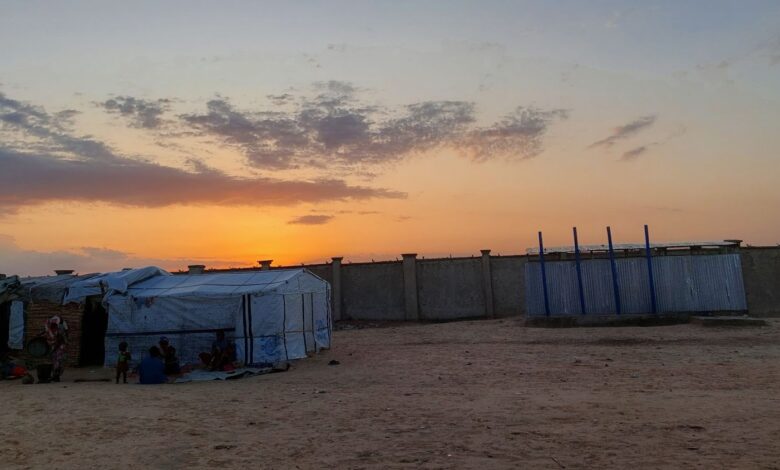Approach To IDP Relocation In Northeast Nigeria Raises Concerns, Report Says
Over 100,000 displaced persons have been relocated from camps in the Maiduguri area between 2021 and 2020 as part of the Borno state government’s resettlement programme.

The present approach to relocation has worsened the exposure of internally displaced persons (IDPs) in northeastern Nigeria to risks such as unsolved housing issues, lack of access to land and secondary displacement, in addition to injuries and fatalities due to mine contamination, says a report by the Protection Sector North-East Nigeria (PSNE).
The report was released on Friday, Sept. 2, after the government of Borno closed the Federal Training Centre (Dalori I) and Housing Estate (Dalori II) camps for displaced persons in July and August. HumAngle had earlier reported that more than 20,000 people were moved out of the two camps in the Konduga Local Government Area.
The recent relocation follows the previous closure of six camps between May 2021 and Jan. 2022 as part of the state government’s camp closure plan. An estimated 103,568 displaced persons were affected by these closures. They were reportedly either returned to their areas of origin or relocated to locations close to their ancestral homes, getting moved into camp or non-camp settlements.
The relocation programme also includes closing all displacement camps across Borno, the epicentre of the thirteen-year-old insurgency.
“The BSG [Borno State Government] should support IDPs in seeking their preferred solution to their internal displacement – be it return to their area of origin, integration within the location of displacement or in any other location within Nigeria – in compliance with national, regional, and international standards and in line with the rights of IDPs and in support of truly durable, lasting solutions to displacement,” the humanitarian group stated.
It also highlighted concerns about the modality of the government conditional, two-staged cash assistance, which the report says lacks clarity on the second stage of the cash distribution process. It added that this has the risk of creating negative pull factors that undermine the ability of displaced persons to make decisions voluntarily.
Another concern was the approach to previous camp closures, which questions the principles of informed consent, safety, dignity, and sustainability.
“The inconsistent food assistance for IDPs in Dalori I and II since May 2021 and the suspension of WFP’s [World Food Programme] and partners’ food assistance since Oct. 2021 are particularly concerning in this context and have clearly contributed to or exacerbated push factors,” it reported.
In April, PSNE had similarly raised questions on the movement of 4,000 Nigerian refugees from Bosso in the Diffa region in Niger republic to Mallam Fatori in the Abadam Local Government Area in northern Borno, near the shores of Lake Chad.
Support Our Journalism
There are millions of ordinary people affected by conflict in Africa whose stories are missing in the mainstream media. HumAngle is determined to tell those challenging and under-reported stories, hoping that the people impacted by these conflicts will find the safety and security they deserve.
To ensure that we continue to provide public service coverage, we have a small favour to ask you. We want you to be part of our journalistic endeavour by contributing a token to us.
Your donation will further promote a robust, free, and independent media.
Donate HereStay Closer To The Stories That Matter




